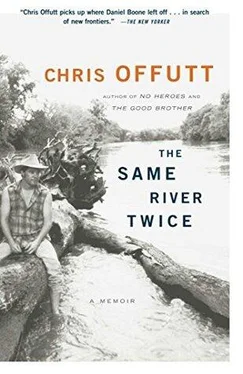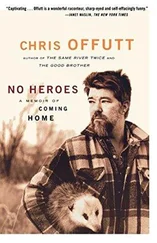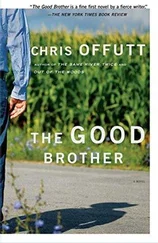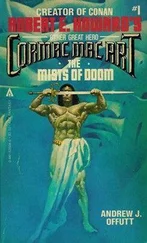I woke early and on the move, despising Nebraskans for their cultural politesse. A man couldn’t buy a pack of smokes without being offered a lighter, exhorted to have a good day, and in general made to feel inferior for not being aggressively cheerful enough. Nebraska was symmetric as an equation, the pathetic result of living on land emptied of buffalo. Prairie dog towns had been reduced to tourist attractions.
I tarried hard in the West, eager to find a home. American boys are raised knowing that a horse between your legs and a low-slung pistol are a guarantee of manhood. It worked for Billy the Kid, who shot seventeen men in the back before he reached legal age. Montana was a beautiful state, but lacked employment. I met a guy with a graduate degree who felt lucky to have work mending fence. A waitress told me that if I planned to settle there, I should bring a woman with me. I was unable to find work in Wyoming either, which made me want to stay, believing that the citizens shared my propensity for freedom. The difference was that they had places to sleep. The people were open to strangers, perhaps because they saw so few. Instead of viewing me with eastern scorn or southern suspicion, they recognized me for what I was, more or less a damn fool.
In Colorado I got a job chipping mortar from bricks with a hammer and chisel. I sat in the dirt beside a pile of brick, making a new pile in a primitive form of recycling. The wage was fourteen cents a brick. After two days of squatting in the sun, my hands ached from gripping the tools, and my fingers were scabbed from mislicks with the hammer.
I collected my pay and moved south, crisscrossing the Continental Divide, trying to find the actual border. Rivers run east on one side, west on the other. My goal was to straddle it. Since we are three-quarters water, I figured that the simultaneous tow of both oceans would rip a hole in my soul for something worthwhile to enter. Black Elk said the central mountain is everywhere. From my vantage alone in the Rockies, centrality always seemed elsewhere. More and more, I depended on my journal. It was organic, I believed, even sentient. I came to regard the process of recording a lived life as the only material fit for writing. Somewhere in the Rockies, this shifted into a belief that the journal was my life, and the rest of existence only a fiction.
After two days of walking south, I was lucky enough to catch a ride to Flagstaff, and from there found — a job washing dishes at the Grand Canyon. The administrative staff took my photograph and sent me to a lightless cabin with no water. Each morning I joined the other workers in public showers at the end of our dead-end lane. At night we drank in the employee bar.
Washing dishes was the ideal work of freedom, requiring no focus save the immediate cleaning of a mottled pot or plate. It also provided food. The occupation was of such wretched status that no one bothered me. Cooks labored in hundred-degree temperatures, while busboys staggered beneath enormous loads. The best waiters were able to change demeanor extremely fast. Seconds after battling a cook or debasing themselves before a tyrannical boss, they had to be sweetly sensitive to a customer. Bartenders enjoyed a slightly higher rank, but the job entailed steady recruitment and coddling of one’s private circle of alcoholics. The dishwasher, in his perpetually soggy and food-flecked state, could remain true to himself.
The canyon gift shops employed Hopi women who sold copper-hued plastic dolls dressed in fringed felt. The hollow foot of each bore an inked stamp that read “Made in Japan.” A few yards away was a hole in the ground a mile deep and ten miles wide. Somebody jumped once a month. Every week, a foreign tourist clutching a camera raced through the pines with skunk stench trailing behind. Apparently the Old World has not a polecat to its name. They are cute, graceful creatures, ripe for a photograph. Sometimes an entire family received the spray.
After supper I watched the sunset from the canyon’s rim, sitting on the narrowest lip of rock protruding over the hole. I wrote in my diary there, looking down on clouds, trying to understand the strange impulse to step into space. It was not death that pulled me, it was the canyon itself. A jump was an urge to fill the void. Just before dusk, I witnessed an electrical storm from above, actually seeing the ignition of lightning and smelling the discharge. A sudden lance of fire cracked into the canyon’s bowels and disappeared. The air smelled of ozone. It cured me of the itch to jump.
Weekends, I walked to the bottom where the Colorado River continued to cut a path. The river has never actually sunk but remains in place, cutting the land as the earth rises against the water. My treks down were a passage backwards through time, descending through millennia layered in the geology of the canyon walls. Color marked each era. Red at the top faded to pink, brown, a delicate green, and finally the slates and violets of the bottom. Naturally there was a bar and restaurant beside the river. Every Sunday, I climbed out to my work.
I was the only dishwasher who was not black, Mexican, or Indian. We worked in teams posted at either end of a colossal automatic washer and rinser. One man fed the beast while two others stacked the clean plates. A fourth dried silverware. Since I was new, my chore was the worst — scraping food into plastic barrels. I saved the good parts to divide later among the crew. Willie, the head cook, offered me a job as short-order breakfast cook. I refused, preferring the simple world of water and dishes. Willie didn’t quite understand this. Each day, he asked if I’d changed my mind yet. He eventually offered a higher wage, but I remained loyal to freedom.
A new manager was shifted to the restaurant, a sneering spud named Jackie Jr. Like many dwellers of the West, he pretended to be a cowboy, in hand-tooled boots, expensive hats, and tailored shirts with pearl snaps. Accustomed to calling all dishwashers “boy,” Jackie Jr. enjoyed referring to me as a “hillbilly,” a term that put me off my feed. Hillbilly was what the people in town called us at home; that and worse — hick, ridgerunner, redneck, inbred ingrate, and my personal favorite, pigfucker. My mother is my sixth cousin. My brother and sister are also my cousins but nobody in my family ever seduced a hog.
I decided to quit after a week beneath the rule of Jackie Jr. On my final shift, he sauntered through the kitchen, amused at our miserable condition. I turned off the dishwashing machine and told him it was broken.
“What’s the matter, hillfuck?” he said. “Even Meskins know how to crank this sucker on.”
As he pushed the mechanized button, I opened the metal trapdoor that housed the soap jets. Jackie Jr. screeched like a kicked cat. Suds and water ruined his splendid clothes. I stepped past him and out the back door, where my pack waited beside a dumpster surrounded by skunks and ravens. Willie followed me. I turned with my arms spread and low, unsure what to expect. His face was lined as a washboard. He eyed the backpack strapped to my shoulders, opened his wallet, and handed me two twenty-dollar bills.
“Go while you can, kid. I’ll slow him down some.”
“I don’t need your money, Willie.”
“Don’t be a fool, kid. You’re too puny to back it up.” He shook his head, chuckling. “I was a goddam drifter once.”
He waited till I took the money, then stepped into the kitchen. I tried to imagine white-haired Willie being young. It was easier than seeing myself as old. I’d begun traveling with the vague belief that I sought something tangible. Now I wondered if I was actually running away, not toward. The legendary West, with its vast and empty spaces, had boiled down to just that — vast and empty, filled with people trying desperately to plug the gap with labor.
Читать дальше












